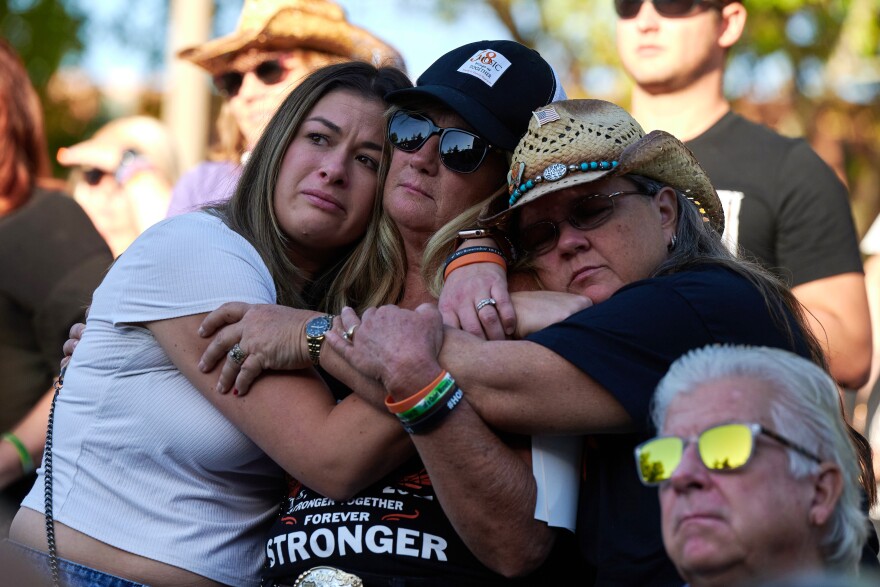LAS VEGAS — Unless you know where it happened, it's tough to find the spot of America's most deadly mass shooting in the modern era.
The sprawling outdoor area is just across from the Mandalay Bay hotel and casino. That's where the gunman stayed, renting a suite on the 32nd floor, where he opened fire on the crowds attending Route 91 Harvest, an open-air country music concert below.
Today a sign at what is now an overflow parking lot for nearby Allegiant stadium promises a permanent memorial for the site - some day. It also says "please don't leave mementos in any form...items left here will be discarded." But some victims' family members have left rocks with the names of the dead clearly written at the bottom of the sign.
"It's crazy that five years later there's literally nothing but a sign there saying there's going to be something," says survivor and Las Vegas resident Heather Gooze.
She's a professional bartender who was working the festival that night. Her bar area became one of several bloody, makeshift triage centers for the wounded and dying. "There's a healing garden, which is amazing. But it's downtown miles away from the site."
Five years after that horrific night, survivors and the families of those who were killed are gathering this weekend to remember. They're paying tribute to strangers and those they loved. But it's difficult when there are signs all around that the tourist-dependent city has moved on.
"I think they (business community) want to make sure it's gone, erased from memory, so to speak, for the city," says local resident and survivor Chris Madsen.
As survivor Gooze notes, at the site, "Now, there's a [NFL Las Vegas Raiders] football parking lot where people were murdered. It's horribly upsetting."
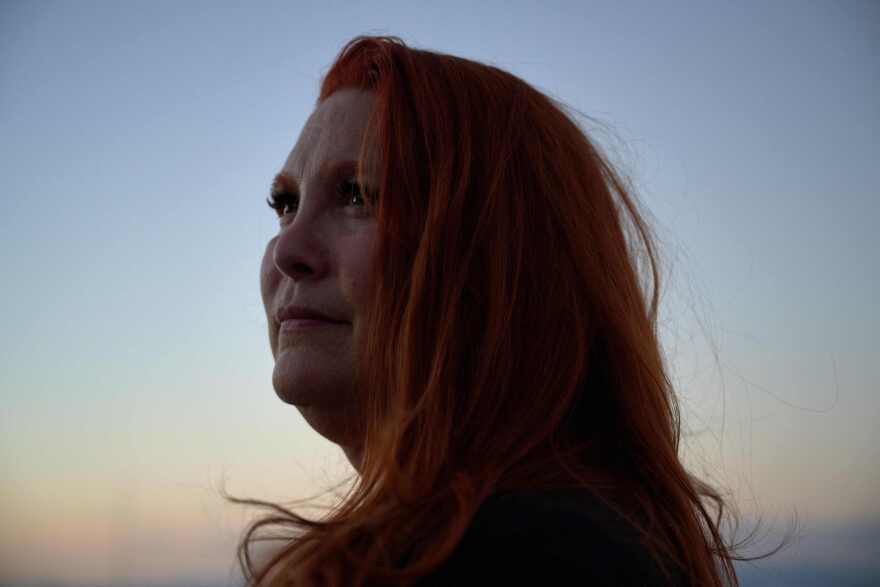
![Heather Gooze shows a tattoo she got to commemorate Route 91. She's frustrated the city has yet to build a memorial on the site of the mass shooting. "Now there's a [NFL Las Vegas Raiders] football parking lot where people were murdered. Tailgating where people died. It's horribly upsetting," she says.](https://npr.brightspotcdn.com/dims4/default/089a0c0/2147483647/strip/true/crop/4500x3000+0+0/resize/880x587!/quality/90/?url=https%3A%2F%2Fmedia.npr.org%2Fassets%2Fimg%2F2022%2F10%2F01%2Froute91-bbennett019_slide-d4b98bc8029fa26d2e7a817cef3fb67f77a2c581.jpg)
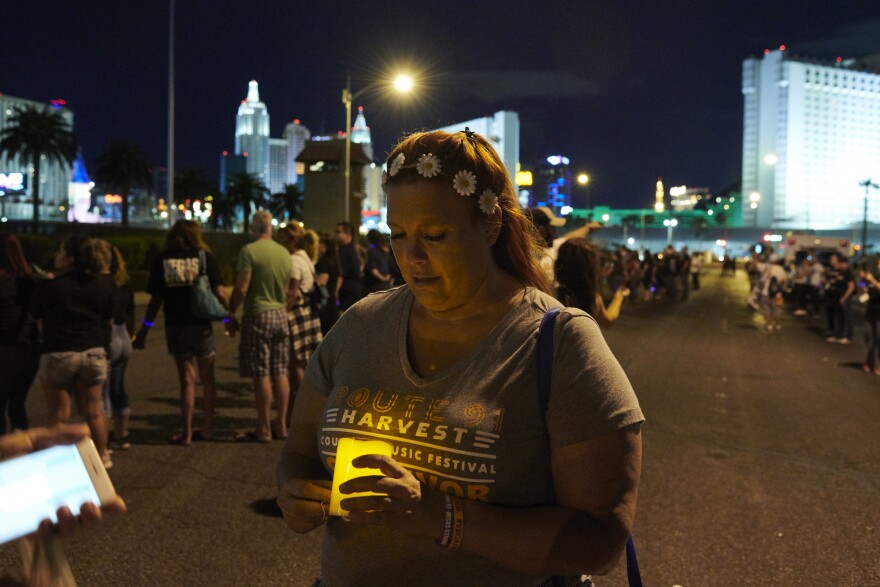
Frustration remains for questions that aren't resolved
Fifty-eight people were killed that night. Two others later died from their injuries. The 64-year-old gunman killed himself.
Hundreds more were wounded and thousands traumatized. Some who faced the carnage up close that October evening still struggle with lingering psychological and physical fallout.
Survivors still have unanswered questions: Why wasn't security better at the Mandalay Bay hotel and resort? Why weren't exits better marked at the concert? And some are frustrated investigators found "no single or clear motivating factor" driving the gunman's rampage and subsequent suicide.
"I really believe most people that visit Vegas for tourism, I don't even think realize what happened there," says Las Vegas resident Chris Madsen, who was enjoying the concert near the stage with his then 9-year-old son Nick when the shooting began. He covered his son on the ground before both made a harrowing escape.

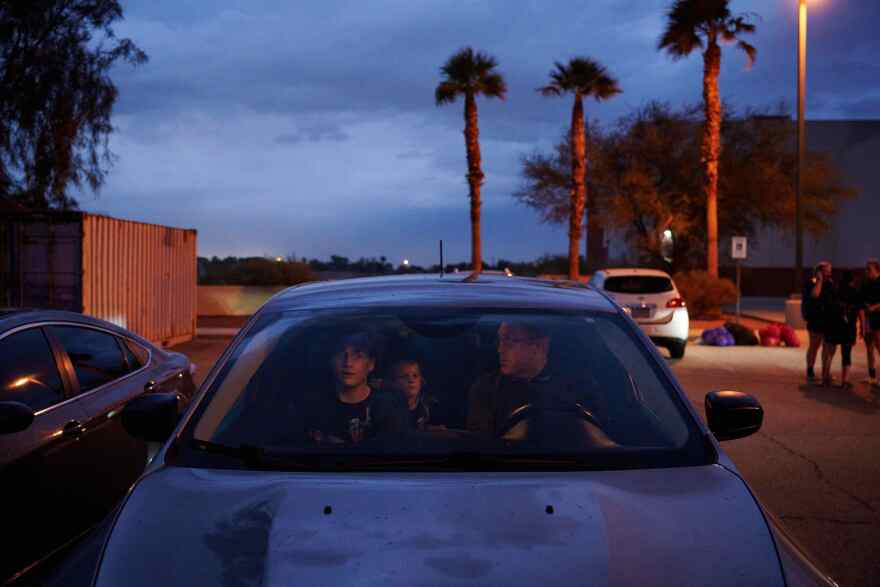

He credits ongoing therapy, his church, his son - and fellow survivors he has befriended from that night for helping him learn to live with the scars.
"We're going to go see them [this weekend] and hug them and take joyous pictures with them and these are all great things," he says. "So you can kind of take it as, 'hey, there's some great lifelong relationships we met from this.'"
But he adds, it's also impossible not to remember it or think of it or hear the bullets or hear the sounds of people being shot.
"That's never going to go away. I think it can dissipate, but it's never going to go away," Madsen says. "I mean, it's something that's forever, unfortunately, going to be part of me."
In 2019 MGM Resorts — owner of Mandalay Bay and the festival grounds – reached an $800 million dollar settlement with thousands of victims and survivors.
As part of the settlement, MGM Resorts acknowledged no liability.
Madsen and his son donated part of their settlement to a local women's shelter their church supports. "Out of darkness, light," Madsen says of his son's idea to donate to the women's charity.
Healing has been different for every survivor.
Li'Shey Johnson was working as a hospitality director at a VIP tent during the festival. She desperately wants to move on from that day. She's had multiple surgeries for a leg injury suffered that night. She sometimes has to use a cane. But it's the mental scars that seem hardest to heal. She sometimes still hears the sound of gunfire, sees the muzzle flashes and recalls the scent of a dead woman who was struck by an armor piercing round and fell in front of her.
"You know, as of today I could still smell her," she says tearing up. "And, you know, I asked the therapist, 'How long do I still smell it? I don't want to smell it anymore. How long am I going to be like this?' But, you know, nobody has any answers because time has to heal."
Johnson has tried talk therapy, medication and a trauma healing technique called EMDR. None seem to work very well. She has her good days. And bad. She says it's a daily struggle that gets harder when the massacre's anniversary rolls around.
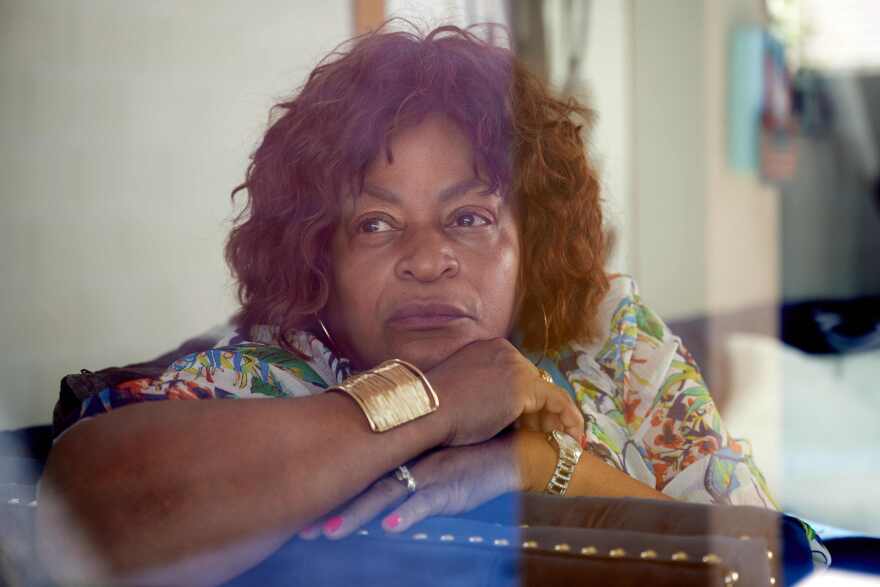
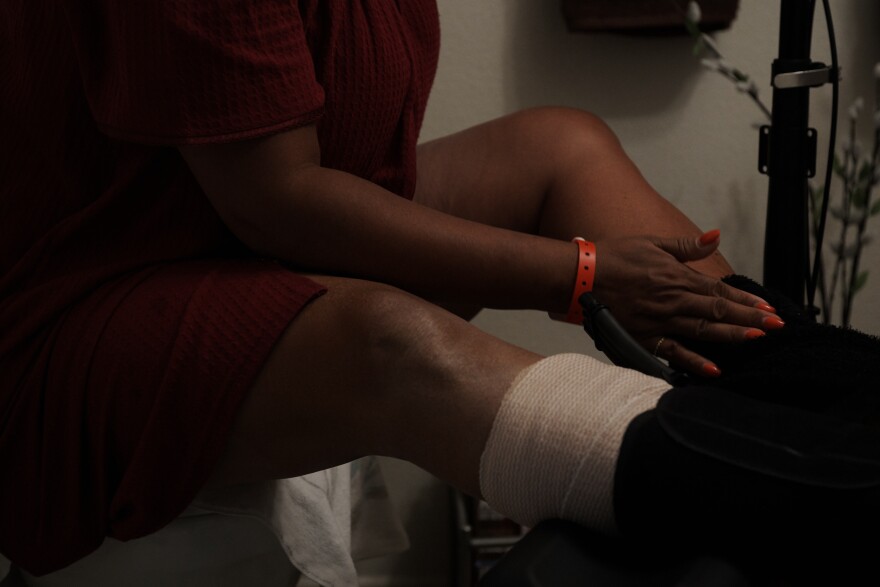
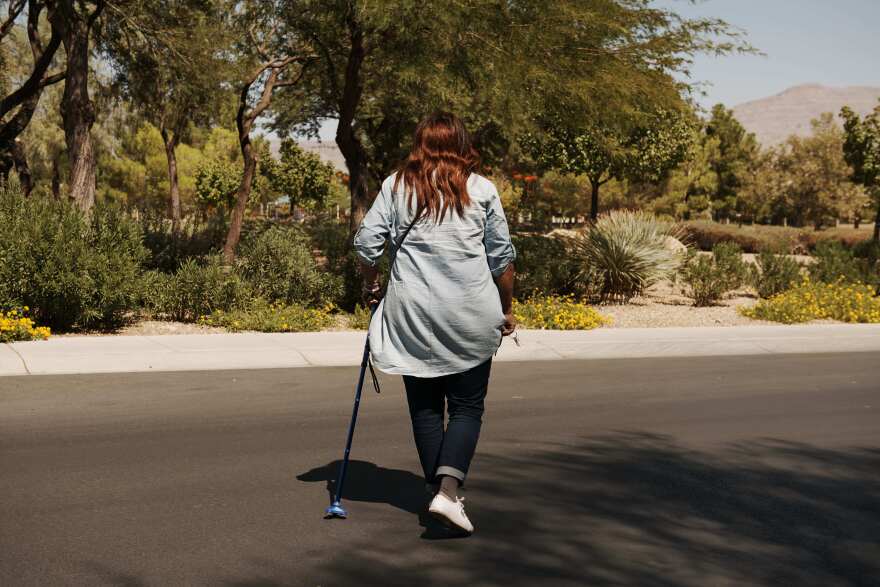
"Just anxiety, can't sleep. I mean I'm literally sick to my stomach. So when someone says, 'how are you doing?' I just start crying," she told NPR. "And I just feel like mentally I cannot handle that."
That type of trauma is still there for more survivors than many people may realize, says Tennille Pereira director of the Vegas Strong Resiliency Center. It provides mental health and other support services for Route 91 survivors and family.
Five years on, the center still treats several hundred people a month. "People are still struggling, but I also want to emphasize that our people that have begun their healing journey," says Pereira. "There's no finish line in this. You know, that trauma doesn't go away. You find a way to cope with it and live with it and find joy again."
In her experience, the number of Route 91 survivors with significant symptoms of Post Traumatic Stress Disorder (PTSD) is greater than the 10 percent experts predict for traumatic events.
"It's actually quite higher than that when it's a mass incident. The impact is much greater," Pereira says. "But I can't give you an actual percentage in this event because we still, to this day, do not have a full list of everyone that was there."
Finding love and support with each other
For hours the night of the shooting, bartender Heather Gooze stayed with several people who were dead or dying. She held one stranger's hand as cell phones in their pockets rang with relatives desperate to reach their loved ones.
Gooze is now friends with several of those relatives and fellow survivors. Her condo is filled with Route 91 memorabilia: cowboy and baseball hats, plaques, a whiskey bottle, art pieces, a planter, and more.
"This is a piece from the healing garden, this is a piece of the broken heart where the tree of life is," she points out.
These are not just trinkets. For Gooze, they represent a vibrant new community – family she calls them – of survivors and relatives she's grown close to and who are there for her online and often in person.


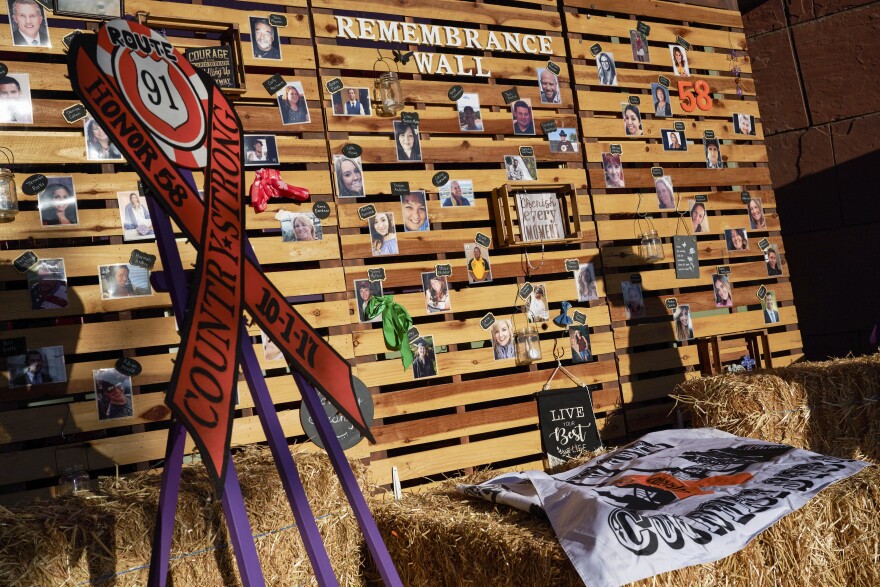
"The awesome people that I've met, the woman who gave me the plant — I never knew her before this all happened. And now she's one of my closest friends; she lives in Havasu, I see here all the time," she says, calling the new-found friends a huge silver lining in the horrors of the mass shooting.
"I honestly don't know if a lot of us would have survived the last five years if it wasn't for the family that we made because of the tragedy that happened," Gooze says while wiping away tears.
This weekend, she will spend time with that new "family," including the mother of victim Chris Hazencomb, one of the strangers Gooze stayed with that night as he lay mortally wounded.
"We'll cry, hug and maybe laugh, too," Gooze says of the bittersweet reunion, and she says they will raise a glass to the living and the dead.

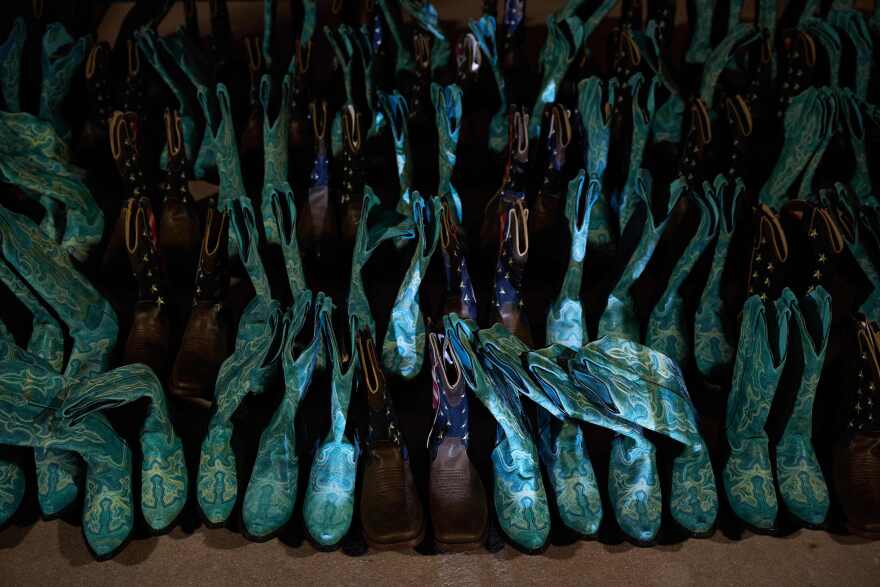
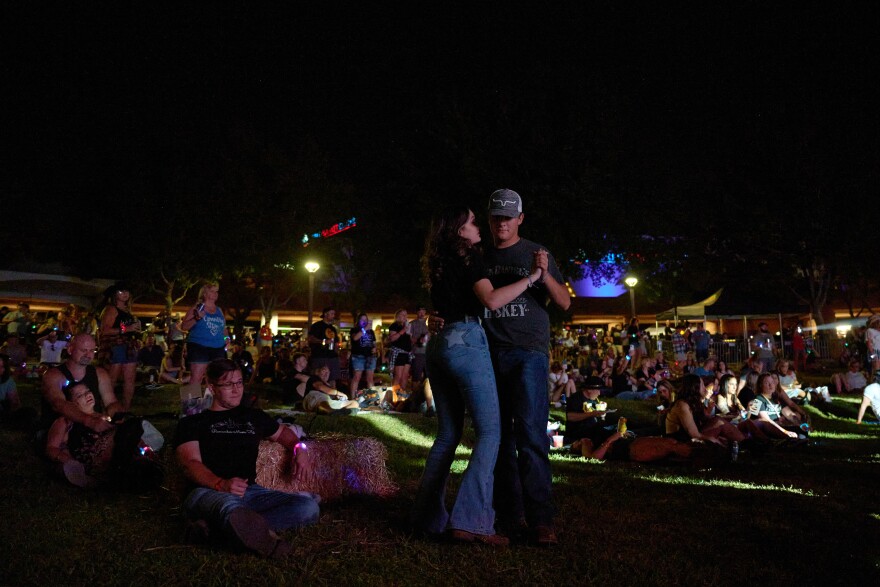
Photographer Bridget Bennett contributed to this report.
Copyright 2023 NPR. To see more, visit https://www.npr.org.


